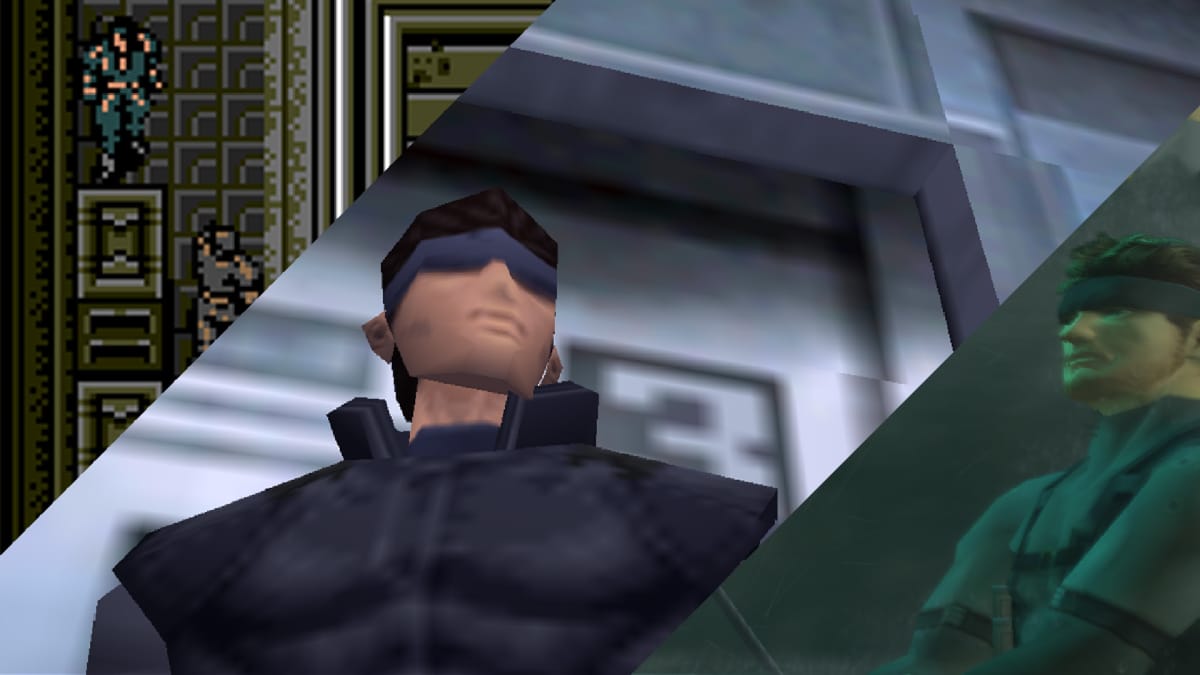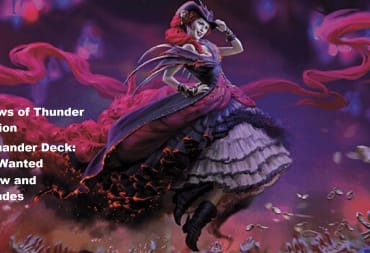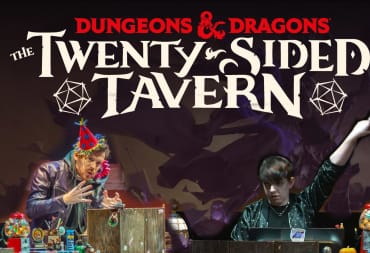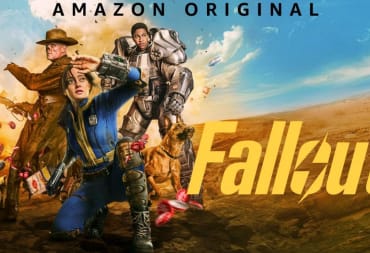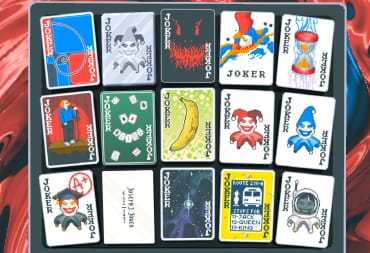Metal Gear Solid is one of gaming's most well-known franchises, and the first game on the PS1 was what catapulted Hideo Kojima into the annals of gaming history. Back in the late '80s and '90s, no one had ever seen anything quite like these games. They were cinematic, had a complex narrative, and some of the best stealth gameplay that was available at the time. The question is, do these games still hold up today? Well, a large chunk of the series just made its way to GOG, so now seems like the time to find out by delving into Metal Gear, Metal Gear Solid, and Metal Gear Solid 2: Sons of Liberty on PC.
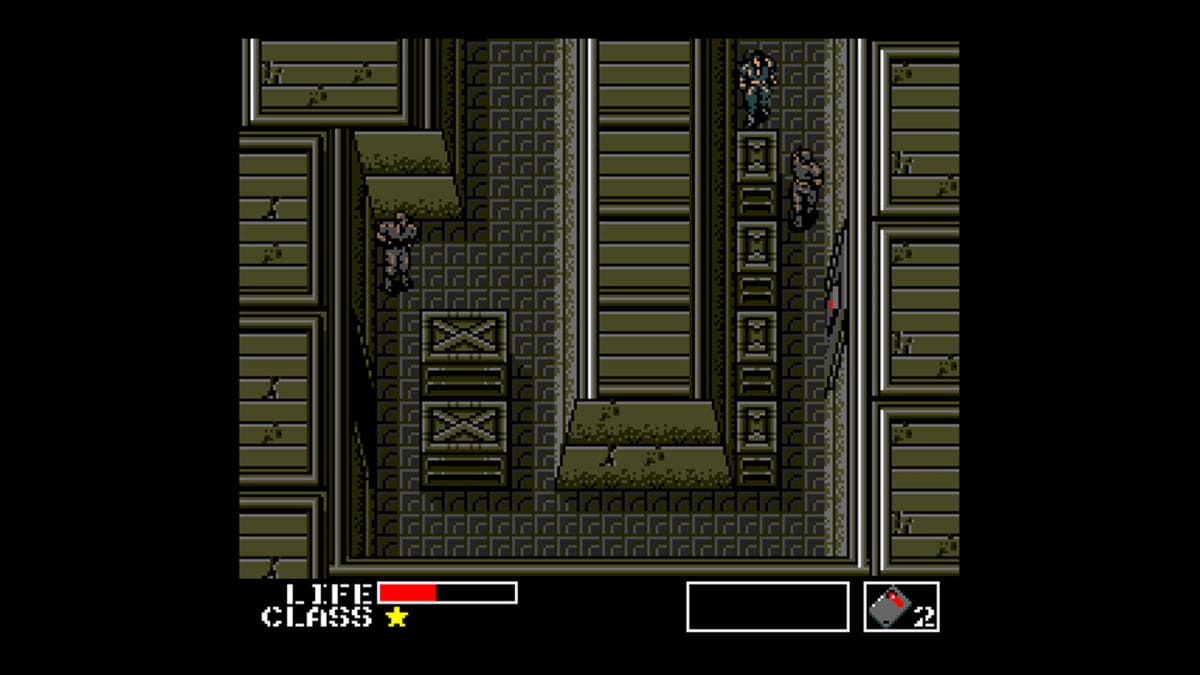
Metal Gear on PC
Metal Gear was the first game in the entire series and isn't necessarily one that most people were all that aware of when they played the PS1 game. The game was originally released exclusively in Japan for the MSX computer and didn't see an official release in the west until Metal Gear Solid 3: Subsistence. Like many other people, the only exposure I had to this game before now was from the NES version, and, to be honest, it's not a great experience on the NES. Luckily, the GOG version of Metal Gear is the game as it was intended to be played.
The biggest shock for me going back to the first entry in the series is just how playable it is. Metal Gear doesn't have the long cutscenes and deep narrative that the rest of the series is famous for, but even in the modern age it still manages to hold up from a gameplay perspective. The game is divided into individual rooms, each being the same size. Other than triggering an alarm, nothing you do in one room will affect the others, so if you pull out a gun and start blasting at your enemies without a silencer you're still pretty safe.
Because Metal Gear is broken down into such bite-sized chunks, it makes it easy to manage. You have access to the transmission system that allows you to be updated by your commander, and then the game becomes a stealth/puzzle game. You need to figure out how to best proceed, and in a lot of cases that requires careful observation of your enemies. The stealth aspect is also easy to manage, even with a radar. Every enemy or camera has a direct line of sight. If you stand in front of them without something in the way then they will see you. It's very simple and makes sneaking past enemies fun and fluid once you get the hang of it, especially once the cardboard box makes an appearance.
That doesn't mean that everything is still amazing. You need to save often because if you make a mistake or use up too many healing items before a boss, then you're completely screwed. The save system also takes you back to a seemingly arbitrary point in the game once you save, rather than saving directly where you are. There are also one or two puzzles that are sort of annoying to solve. At one point you lose all your items and have to get them back while avoiding a boss. To do this you have to punch a door until it opens for you, but this isn't something you've ever had to do before up to this point. My first few time I died because I kept trying to punch the boss in the face.
Luckily, time has been kinder to Metal Gear's graphics. In this age of modern pixel art, the game still looks as good as anything has any right to look. Comparing it to the NES version it's easy to see why the original game was so successful in Japan. It looks beautiful, and at no point did I ever wonder what something was supposed to be, which is pretty rare for a game from 1989. In short, despite its age, Metal Gear is still a great experience, and it's awesome to see the game back on modern PCs thanks to the lads over at GOG.
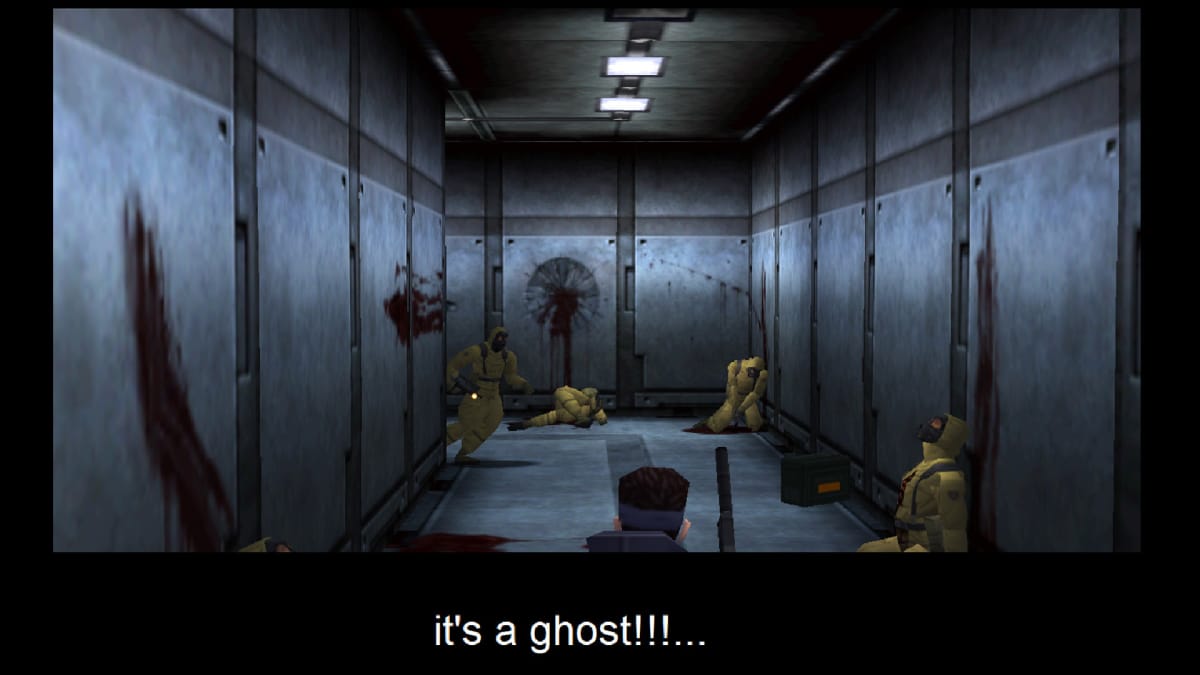
Metal Gear Solid on PC
Metal Gear Solid was the first game in the series that most people played, and it's the definition of a blockbuster game. The story is massive, complex, and told through cutscenes that would not have been possible on the systems that came before the PlayStation. The camera angles feel like they come straight out of an action/sci-fi movie, and the plot fits right along with that. As a small child, I very distinctly remember being traumatized by the scene that features a large number of bloodstains and dismembered corpses, but then again I was a wuss as a child.
While the pixel art found in Metal Gear has aged like a fine wine, Metal Gear Solid has aged like room temperature milk. Everything in the game looks like it was made out of cardboard, much the same as any other video game from the PS1 era. It's even worse when the characters being rendered are supposed to represent realistic human beings rather than cartoon animals or monsters. It's hard to look back at these graphics and remember how they used to inspire the same amount of empathy and engagement as the photorealistic human figures that we're used to today.
Then again, graphics aren't everything. The story, gameplay, and for the most part acting are still as good as they ever were. The plot about a terrorist attack on a U.S. military base in Alaska, dragging in a legendary retired super spy is still as compelling as it ever was, even if it looks like someone's been at Snake's face with a belt sander. It's not hard to understand what has always made this game so compelling because even to this day, it still shines, through if you can get past the outdated presentation.
The controls are another matter, however. Comparing them to the console version, this particular port struggles a little. While a gamepad will technically work out of the box, the controls feel floaty and hard-to-master when using an analog stick. You can try to remap to the D-pad which works better, but this prevents you from sneaking properly as the game can't register diagonal movement on the D-pad at all. This means you get stuck with keyboard controls that are all bunched up on one side.
If it sounds like I'm saying that Metal Gear Solid on PC doesn't hold up anymore reader, then prepare to eat those words. Despite the control issues, and one or two gameplay moments that were much more annoying than I remember, I still couldn't stop myself from playing it. I have access to the game on the original system and yet, once I was hooked in by the gameplay and story, no amount of clunky controls could prevent me from playing it—neither could 8 a.m. and a lack of sleep either, for that matter.
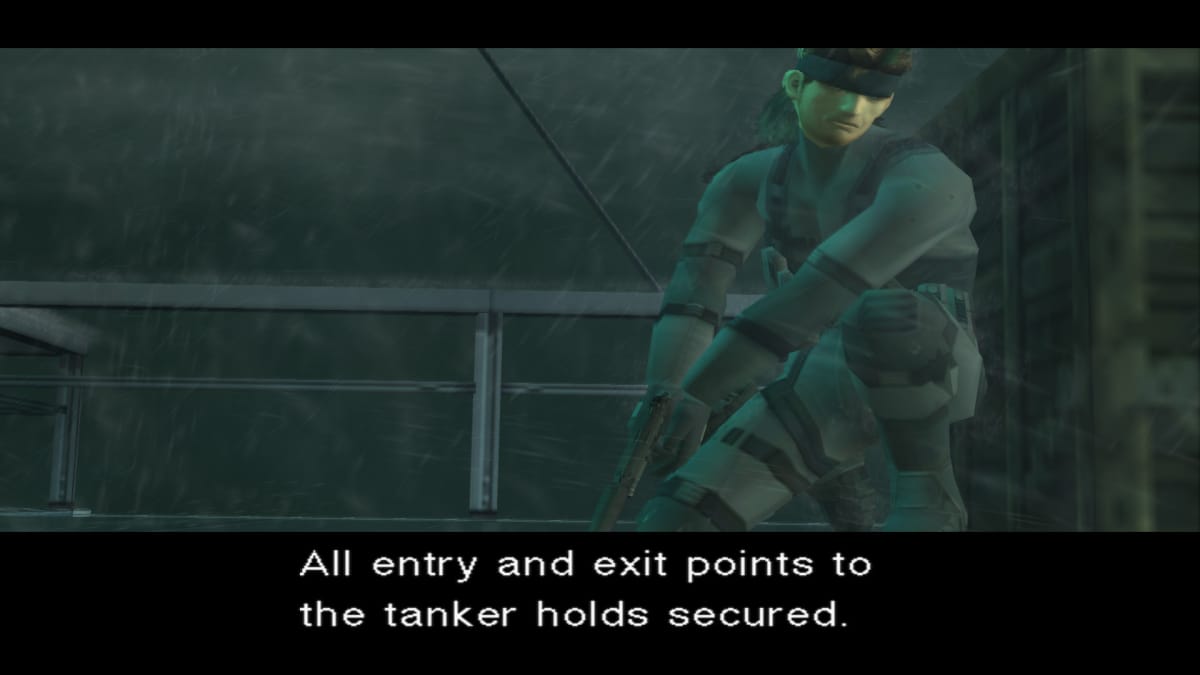
Metal Gear Solid 2: Substance on PC
Metal Gear Solid 2 was a pretty divisive game when it first came out, and to this day it still has a negative reputation with some people. There's a bait-and-switch going on, and a lot of the beats feel pretty similar to the original game, although this last point is intentional. Either way, the game was still critically acclaimed back when it first came out, so there must be something to the experience for it to have struck such a chord with the gaming press. Does that necessarily mean that it holds up these days? There's only one way to find out.
Time has been much kinder to the visuals of Metal Gear Solid 2 than it had to those of the PS1 game. Rather than barely recognizable, humanoid-ish figures, the characters in MGS2 do look like real people. Sure it's still a PS2 generation game, so they're not exactly what you'd call photorealistic, but you can play the game in 1080p widescreen and everything look crisp—plus your eyes won't even bleed with this one. Bonus.
As you would probably expect from a sequel to the original Metal Gear Solid, the mechanics are largely similar to the original game but expanded. For instance, you can shoot in first-person now which makes headshots possible. You also have to be more careful with the bodies you leave behind, as enemies will come looking for soldiers that you take out if they don't report in. To go along with this you can now drag bodies around to hide them in cupboards or behind boxes, which you have to do an alarming amount if you tranq people as much as I do.
Metal Gear Solid 2 is still an intensely fun and engaging experience, much like the first port. Sneaking around is still as fun as ever, and the gameplay changes help to make this game feel much more up-to-date than the last game. There are also far fewer frustrating moments throughout, although the sword controls they introduce half-an-hour before the end of the game do spring to mind. There's also just more to this game, tons of extra content and you don't spend so much time back-tracking through areas you've already been through, at least not in a way that makes the game feel unnecessarily padded out.
The only real bugbear is that by this point, Hideo Kojima was a full-blown cutscene addict. When you're dying to get on with some fun sneaking missions, you keep getting interrupted by conversations about AI, genes, and international conspiracy theories. On the plus side, once you already know the story, everything is skippable, so on a second playthrough things move much quicker. And you'll want to do at least one extra playthrough with all the extras for you to experience. Plus any game that allows you to watch a cutscene with four copies of the same character doing all the lines has got to be worth playing, no matter what decade it is.
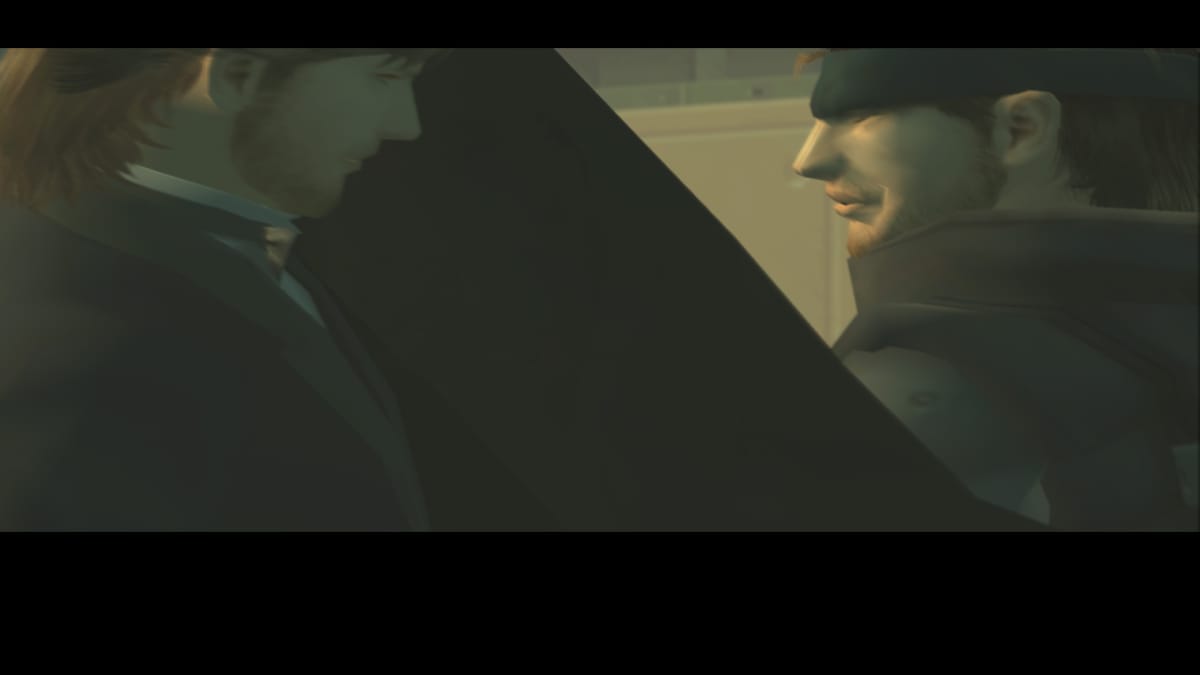
In Conclusion
Whether it's from the '80s, '90s, or 2000s, it seems like every game in the Metal Gear Solid series holds its own in the modern era. The older games have some clunk here or there, but there's something just innately compelling about the gameplay that stops it from feeling stale. The ports may have one or two issues, but none that gets in the way of playing some of the best stealth games ever made. If you want to play this series on PC, this is without a doubt the best way to go about doing it—just don't be shocked if you struggle to stop once you get started.
You can get your hands on Metal Gear, Metal Gear Solid, and Metal Gear Solid 2: Substance at GOG.com.
Disclosure: GOG works with TechRaptor for affiliate partnership, and TechRaptor earns a small commission off purchases made from links in this article.
Have a tip, or want to point out something we missed? Leave a Comment or e-mail us at tips@techraptor.net
